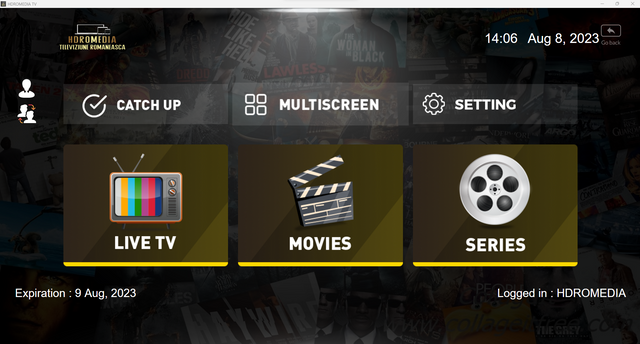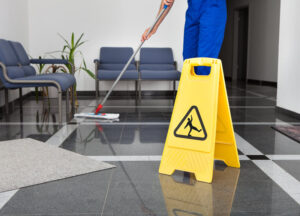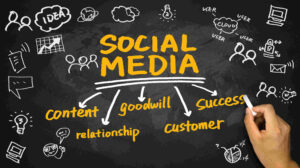Excessive social media use has many of the same effects as substance abuse, says expert
The average American spends nearly 2½ hours per day on social media, and that number more than doubles for teens, studies have shown.
For many people, the reliance on social media can feel much like an addiction — and many experts believe that’s exactly what it is.
“Social media addiction is not yet recognized in our diagnostic manual — however, we have seen a growth in social media use, and research has begun to show some similarities with addiction, just not enough to define a diagnosis formally,” Lindsay Oberleitner, a clinical psychologist and education director at SimplePractice in Detroit, Michigan, told Fox News Digital.
SURGEON GENERAL’S ADVISORY ON SOCIAL MEDIA AND YOUTH MENTAL HEALTH COMES AMID ‘REAL-TIME EXPERIMENT’
SimplePractice is an electronic health records solution that serves more than 178,000 solo and small-group practitioners.
Another commonly used term, “problematic social media use,” does not quite capture the depth of difficulties that individuals are experiencing with social media, Oberleitner said.
“‘Problematic’ can imply risky behaviors, such as illegal behavior on social media, rather than the personal pattern of detrimental use to which social media addiction refers.”
Lindsay Oberleitner is a clinical psychologist and education director at SimplePractice in Michigan. “Social media addiction is not yet recognized in our diagnostic manual — however, we have seen a growth in social media use, and research has begun to show some similarities with addiction,” she told Fox News Digital. (Lindsey Oberleitner/SimplePractice)
One Reddit user, l3moncardboard, recently shared an experience with social media dependency.
“I am insanely addicted to my phone. My screen time is disgusting and I’m ashamed — it’s upward of five hours per day … It creates the worst case of anxiety in my brain and makes me overthink,” the person also wrote.
TEENAGE BINGE-DRINKING: WHY IT’S SO DANGEROUS FOR YOUNG PEOPLE TO OVERINDULGE IN ALCOHOL
“My days are quite literally dictated by if certain people respond to the snap I’ve sent them or not. How can I manage this? It’s absolute insanity and I can’t stand it.”Warning signs of social media addiction
Some of the telltale signs of problematic social media use can mimic the symptoms of behavioral addictions and substance use disorders, but on a smaller scale, said Oberleitner.
One of the biggest red flags is when the excessive use of social media platforms interferes with other daily activities.
The average American spends nearly 2½ hours per day on social media, and that number more than doubles for teens, studies have shown. (iStock)
“The individual might begin to withdraw from in-person events, disengage while at social events or quit participating in activities they used to enjoy,” the doctor said.
“We might also see concerning levels of distress when they can’t use social media.”
TEENS AND SOCIAL MEDIA: AMERICAN PSYCHOLOGICAL ASSOCIATION ISSUES GUIDANCE FOR SAFE USE AND ‘INSTRUCTION’
Someone who is addicted to social media will likely continue to use it despite the harmful effects, Oberleitner said.
“For example, the individual is aware that the time spent on social media interferes with school or work performance, but they do not decrease their time spent,” she said.
“I am insanely addicted to my phone. My screen time is disgusting and I’m ashamed.”
The person might attempt to reduce the time spent on social media — but is likely unsuccessful.
“We may also see that family and friends are upset by the individual’s use of social media, to the point that it causes strain on their relationships,” Oberleitner noted.
Excessive social media use can mimic substance addiction, one clinical psychologist told Fox News Digital. (iStock)
Excessive social media use can also cause impaired school and work performance, feelings of isolation and loneliness, negative self-image, sleep difficulties, disordered eating and increased symptoms of depression and anxiety, the doctor warned.
“Broadly, in addictive disorders, we see a pattern of a loss of control, compulsivity of use, negative consequences on personal and interpersonal functioning, and intense desires for use,” she added.The risk factors
While anyone can develop an unhealthy reliance on social media, it tends to be more prevalent among young people, Oberleitner said.
“Negative impacts from overuse are particularly problematic for youth,” she said. “Brain development continues into our 20s, and the frontal cortex, responsible for planning behavior, is the last area to develop fully.”
Someone who is addicted to social media will likely continue to use it despite the harmful effects, Oberleitner said. (Matt Cardy/Getty Images)
Young people are also less likely to consider the risks of their harmful behaviors — making it harder to stop them, the doctor pointed out.
“Coping strategies, social skills and emotion regulation are all skills we learn and develop in childhood, adolescence and beyond,” she went on.
“Excessive social media use can interfere with the development of each of these areas.”
“Individuals who experience anxiety and loneliness are more prone to problematic social media use.”
As one teen user wrote on Reddit, “I’m quite young and want to enjoy my teenage years. My phone has caused me so much unnecessary negative emotions already, and I’ve just reached a point where it’s completely draining and dictates the way I go about daily life.”
TEEN GIRLS SPEND MORE TIME ON ‘SENSITIVE’ SOCIAL MEDIA CONTENT THAT CAN HARM MENTAL HEALTH, REPORT SAYS
Individuals with high impulsivity are also more likely to display addictive social media behavior, said Oberleitner, as it is harder for them to stop engaging in unhealthy behaviors.
“It has also been observed that individuals who experience anxiety and loneliness are more prone to problematic social media use,” she added.Doctor’s tips for detoxing
When it comes to approaches to stopping the overuse of social media, one size does not fit all, said Oberleitner.
Many people use a combined approach, starting with a “full-stop period” when they don’t use social media at all — and then gradually restarting with moderation.
Some of the telltale signs of problematic social media use can mimic the symptoms of behavioral addictions and substance use disorders, but on a smaller scale, said Oberleitner. (iStock)
“The full-stop approach mimics abstinence-only approaches in substance use,” said Oberleitner. “It is unlikely to be feasible to never return to social media use, so the key is setting the time you want to step away.”
This might be a day, weekend, week or even a month, which gives the person a chance to “break the reinforcing cycle of social media use,” she said.
“A full stop can be as simple as hiding away computers and tablets, and removing phone apps that make social media access easy,” Oberleitner said.
SURGEON GENERAL RELEASES ADVISORY CALLING FOR IMPROVED SOCIAL CONNECTION
After the full-stop period, the person could resume use with “moderation or harm reduction approaches” in place, she said.
“Some examples could be setting a 30-minute time after dinner each day that you look at social media, or only social media engagement with it on the weekend for a limited time,” said Oberleitner.
“It might also include making plans to reengage with activities you have been missing out on because of social media use.”
One of the biggest red flags is when excessive use of social media platforms interferes with other daily activities, Oberleitner said. (iStock)
This approach is most likely to work when an individual has a network of individuals who will support attempts to cut back, the doctor said.
For some, it may be helpful to make accessing social media harder than usual.
This might mean removing phone apps, not saving passwords on browsers so extra steps are needed to sign in, and putting away tablets and computers.
ADDICTION COMPLICATES PAIN MANAGEMENT, BUT NEW GUIDELINES OFFER HELP FOR ‘COMPLEX PATIENTS’
“Reducing access can involve an active choice to set a time each day devoted to social media while simultaneously committing to not accessing social media at any time outside of that explicit time window,” Oberleitner said.
When treating people with addictions, she often helps them identify triggers for their behavior.
Even those who don’t consider themselves addicted to social media can benefit from reducing their usage and adopting healthier relationships with the technology, noted Oberleitner. (iStock)
“The closer the approximation of the trigger to the behavior we want to change, the harder it is to resist,” she said.
“So regarding social media use, it will be tough to change our behavior if we are sitting on the couch with our tablet next to us.”Real people share detox tips and tricks
One Reddit user, urcrain, offered this tip: “Determine what you are spending most of your time doing on social media. If it’s meme hunting and sharing, try eliminating that. Find alternative ways to get important areas of social media in a less addictive way.”
“Try to find things to do that can keep you entertained and busy during the times that you usually want to pick up your phone.”
ZenithArmageddon offered more tips: “Try to find things to do that can keep you entertained and busy during the times that you usually want to pick up your phone. Busy hands are great to keep the phone away.”
This person also suggested, ,”If you find yourself returning too much, then try to reduce the amount of stimulation you get from your social media. Avoid ‘for you’ recommendations such as the explore tab on Instagram, and mute the stories and posts on friends who you don’t really keep up with. It’s OK to still look at what your friends are doing, but try to catch yourself before you go down the ‘explore’ rabbit hole.”
“Reducing access can involve an active choice to set a time each day devoted to social media while simultaneously committing to not accessing social media at any time outside of that time window,” Oberleitner said. (iStock)
Another user, NavyRedRose, suggested more approaches: “Some phones can have you set screen time reminders and downtime. For example, I’ve added a 45-minute limitation per day to certain social media apps. Once I hit the limit, it’s no more of that app for the rest of the day.”
DEMENTIA PATIENTS WHO TAKE OPIOIDS FACE ‘WORRISOME’ DEATH RISK, NEW STUDY FINDS
This person also wrote, “I noticed that using my local library’s app and borrowing audiobooks has helped me put my phone down more as well. I can listen to an audio book or podcast as a distraction, but I can also do something else while I’m listening that keeps me present in my day-to-day life.”
Other suggestions included adopting a “digital Sabbath” one day per week, only using social media on alternating days, practicing mindfulness exercises, and focusing only on quality content instead of “mindlessly scrolling.”
CLICK HERE TO SIGN UP FOR OUR HEALTH NEWSLETTER
Even those who don’t consider themselves addicted to social media can benefit from reducing their usage and adopting healthier relationships with the technology, noted Oberleitner.
The doctor also emphasized the “urgent need” for continued research and development in this area, as well as a greater integration of addiction-related assessment and treatment across health care. Weighing benefits and risks
Despite its risks, social media use is not all bad, Oberleitner said — after all, there was a reason for its rapid growth.
“Negative impacts from overuse are particularly problematic for youth,” said Oberleitner. (iStock)
“Social media can reduce stigma and isolation for individuals by finding networks of individuals with similar experiences and interests — connections that might not be possible within someone’s immediate community,” she told Fox News Digital.
It can also allow connection during isolation, such as illness, and enable connections through distance and time, she said.
CLICK HERE TO GET THE FOX NEWS APP
“Suppose we can continue to support efforts to help people decipher helpful from non-helpful, and informed from misinformation, when viewing social media,” Oberleitner said.
“In that case, it can also be an excellent source of access to information.”
Melissa Rudy is health editor and a member of the lifestyle team at Fox News Digital.
02
‘You spend a lot of time working – so why not pick something you love?’ Entrepreneur reveals how she turned her hobby into a business
It’s safe to say Rachel Bambrough is passionate about stand-up paddleboarding – one of the UK’s fastest growing watersports.
‘Being out on the water with just you, the board and the wildlife around you is so relaxing – you’re free from any worries and stresses,’ she says.
While lots of us have hobbies we enjoy in our spare time, it’s rare to be able to pursue them as a full-time job.
But that’s exactly what Rachel is doing after setting up SUP4, a business offering paddleboarding sessions.
Currently in Kingston-upon-Thames, south-west London, at the end of this summer she’ll be taking the business to the north-east, where she’s expanding her offering to host outdoor retreats and wellness escapes too.
Rachel Bambrough (right) is the owner of SUP4, which runs stand-up paddleboarding sessions in south-west London
She began coaching the sport in her spare time before deciding to ditch her corporate job and set up on her own. Five side hustle ideas to make extra money in 2023
A side hustle can be a great way to boost your financial security while pursuing your passions, with UK online side hustles generating £21,400 a year on average*.
If you’ve been toying with the idea yourself but aren’t sure where to start, here are a few ideas that could work as a successful side venture –
1. Pet sitting: If you’re an animal lover and have experience in looking after your own or other people’s animals, why not offer yourself as a pet sitter?
2. Custom T-shirts: It’s easier than you think to launch a clothing range. You just need to come up with the witty slogans and you can pass the production over to a print-on-demand company.
3. Cake making: Cupcakes, brownie boxes, celebration cakes, seasonal treat boxes, dipping boxes, party platters — if you have a talent for baking, you can turn it into a side hustle and offer cakes for both delivery and collection.
4. Artwork: There are so many avenues for talented artists to make money online. Whether you specialise in pet portraits or abstract art and whether you sketch, paint or sculpt, you can sell your pieces through your own website or through a third party.
5. Personalised gifts: If you’ve got a graphic design background, you could set up a business selling personalised presents for birthdays and special occasions.
‘You spend a lot of time at work, so why wouldn’t you choose something that you are completely passionate about?’ she asks.
Rachel – who is originally from north-east England – felt watersports like paddleboarding were elitist, so prides herself on an inclusive approach, with individual classes and group sessions for people of all ages and abilities in a bid to make it more accessible.
‘A lot of people are quite nervous when they come along, so we do a few exercises to help them relax before going out on the water,’ she says.
‘It’s nice to see people progress quite quickly. Then when they come off the river they’re absolutely buzzing with endorphins.’
Crucial to the success of SUP4 has been the company’s website, which Rachel uses to attract new customers, take session bookings and to secure payments.
‘It’s got a lot of information about what paddleboarding is all about and how to get started, from beginner sessions to long trips for those who are more experienced,’ she says.
To develop an online presence Rachel turned to the GoDaddy Website Builder, which allows anyone to create their own modern, professional website without any technical know-how.
There are thousands of easy-to-use templates to choose from, in addition to 24/7 telephone and live chat support, SEO optimisation and industry leading load times.
‘I started off not knowing anything at all about setting up a website to now running one completely independently,’ says Rachel.
‘The customer service team was so supportive and able to help with everything I needed. And the site we’ve created is so easy to navigate – anyone can use it.’
GoDaddy offers a wide range of e-commerce options to help entrepreneurs sell goods and services online quickly and securely – whether they’re established businesspeople or just getting started.
Rachel began using the online events scheduling tool to let people sign up and pay securely for classes – and has already seen an increase in bookings.
Rachel – who is originally from north-east England – prides herself on an inclusive approach, with individual classes and group sessions for people of all ages and abilities
Crucial to the success of SUP4 has been the company’s website, which Rachel uses to attract new customers for her sessions (pictured)
She also takes advantage of GoDaddy’s built-in marketing features to build up a database of customers so she can keep them informed about any SUP4 news and developments.
‘When someone makes a booking online, they are able to input their key contact information, so I can keep them up to date,’ she says.
‘It’s a really useful tool. I couldn’t do the newsletters and the updates without it.’
Working alongside GoDaddy, Rachel hopes to spread her love of paddleboarding to new audiences and encourage them to give it a go.
‘It allows me to share that feeling of being on the water with a completely new audience,’ she says.
‘I could not run my business without the website, especially being a small starter.’
Rachel first became curious about paddleboarding during a day trip to Bournemouth.
Despite being worried about falling in and ‘looking silly’, she gave it a go and really enjoyed herself.
That started a passion with the sport that continued after she moved to Denmark, where she began coaching at a school run by a couple she was friends with.
She joined a club after returning to London before later setting up SUP4.
Rachel is delighted to have been able to make a living from her favourite hobby
‘I wanted to take on something I hadn’t done before,’ she says.
‘The idea was to push myself out of my comfort zone and bring a community of like-minded people together.’
Rachel admits she found plenty of things challenging, including understanding the rules around taxes and insurance.
But now she is enjoying herself and has big plans to widen her offering in the future.
‘I’d like to offer a holistic experience. So not just the sport itself, but a space where everyone can come together with things like hot tubs and saunas, good coffee and good bread,’ she says.
‘I’m really looking forward to the future and seeing how things develop!’
Visit GoDaddy today to discover how they can help turn your side hustle into a business, or read their free tips and tricks on their blog to learn more.
*https://uk.godaddy.com/blog/u-k-side-hustlers-on-fire-new-godaddy-research-study-shows
03
4 ways to live longer without spending much money, according to SuperAgers from the world’s Blue Zones
Drinking herbal tea can boost your health and support longevity — and you can grow herbs like rosemary and sage yourself. PrathanChorruangsak/Getty Images
You don’t need to spend tons of money to improve your health and prolong lifespan.
Cheap ways to improve your health include drinking tea and eating more beans.
Free, simple habits like socializing and taking more walks can also add years to your life.
Sorry to the tech execs and ultra-rich spending millions to live longer — the best things in life may actually be (almost) free, at least when it comes to boosting longevity.
Some of the best evidence-based ways to extend your life are cheap, according to bestselling author Dan Buettner, who pioneered the research on Blue Zones, locations where residents have high rates of living into their 100s. Regions in Costa Rica, Italy, Greece, and even the US have some of the longest-living, healthiest residents on the planet, and Buettner explores what they have in common in a new book and Netflix docuseries.
“I have found that most of what people think leads to a long, healthy life is misguided or just plain wrong,” Buettner said in the series. “Every year Americans spend billions of dollars on diet plans, gym memberships and supplements, but it’s clearly not working for us.”
Instead of expensive vitamins or fancy fitness studios, SuperAgers seem to base their longevity routine on simple healthy habits like getting their daily steps in, socializing, and eating foods you probably already have in your pantry. And, they’re things that won’t break the banks, costing a few dollars or nothing at all.Drink herbal tea for a boost of life-extending nutrients
Sipping a longevity-boosting brew is nothing new, but most headlines about healthy beverages focus on trendy ingredients like matcha, expensive organic blends, or even coffee.
While generally black and green teas and coffee can be good for you, a more humble health boost is available in the form of simple herbal teas.
In Ikaria, Greece, Buettner found SuperAgers enjoy herbal tea made from everyday herbs like sage, rosemary or easy-to-grow plants like common mallow. Plants used in herbal teas often contain antioxidants, anti-inflammatory compounds and other micronutrients that can help improve digestion, blood pressure, and cholesterol levels, according to Penn Medicine.
You can cultivate many herbs to make tea yourself, either in a small backyard or community garden, or even in simple indoor pots.Eat more beans for a cheap, accessible superfood
Forget the keto diet: Blue Zone residents seem to thrive on eating plenty of carbs, including whole grains and starchy veggies like sweet potatoes.
But when it comes to an easily-available food with a massive nutritional punch, beans are as close to a superfood as anything, Buettner previously told Insider.
They provide a healthy dose of fiber, which is important for healthy digestion, stable blood sugar, and preventing colon cancer.
Beans are a staple of the traditional Mediterranean diet in the Blue Zones of Greece and Italy, in recipes like minestrone soup or chickpea salad.
In areas like Costa Rica, beans are often grown and eaten alongside corn and squash, known as the “three sisters,” to make a complete protein source with all the essential amino acids.Walk more to lower your risk of dying early
There’s good evidence that exercise plays a major role in keeping us healthy as we age, but fitness routines can be hard to stick to over time.
One of the common factors across Blue Zones is that residents get plenty of exercise in their day-to-day routine just by traveling on foot, according to Buettner.
“None of them have big biceps or could do a triathlon. They’re walking,” he said.
And you don’t have to hit 10,000 steps for health benefits, either, although SuperAgers in areas like Singapore easily log that many without trying, since cars are expensive.
Research shows that taking a few thousands steps every day — the equivalent of a 30 minute walk — can help stave off dementia, heart disease, cancer, and other causes of earlier death, especially if you keep a brisk, purposeful pace.
A recent study found that adding just 500 to 1000 steps per day is linked to substantially reduced risk of disease, which you can do in less than 15 minutes on your lunch break, on your way to work, or before dinner.Spend time with friends and family to add years to your life
One of the best ways to boost your health, and your mood, without spending a cent is by building connections with other people, evidence suggests.
Loneliness is considered an epidemic, with some research suggesting it’s linked to health consequences as smoking, and can shave more than 15 years off your life.
In contrast, making and keeping close personal ties, whether that’s friendships, family bonds, or romantic partnerships, can help prevent that lost time, according to Buettner.
He found that in Blue Zones such as Okinawa, people prioritize creating social circles for community activities like talking, singing, dancing, or even financial support.
“There is no pill, no supplement, no blockbuster drug that could give us anywhere near 15 years,” Buettner said. “But here in Okinawa, they’re getting those years by simply finding friends, committing to those friends, and spending time with those friends every day.”
That makes your social life more powerful than anything money can buy when it comes to extending your lifespan.
Read the original article on Insider










Post Comment